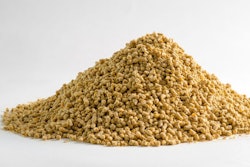Producing biogas at animal farms plants across Thailand
CP Foods is promoting environmentally friendly and sustainable food production in line with the Bio-Circular-Green economy model (BCG) by producing biogas at animal farms and food manufacturing plants across Thailand. This year marks the company’s second decade of using biogas at all farm operations, including hog, poultry and layer farms to convert animal manure and wastewater to energy, allowing it to reduce greenhouse gas emissions and achieve net-zero emissions by 2050.
Somporn Jermpong, executive vice president for swine business of CP Foods, said the company prioritizes environmentally friendly and sustainable food production systems. The company promotes energy efficiency and increases the use of renewable energy. The company has treated animal manure and wastewater in the farm-processing and food businesses though biogas system which convert to power generation to use in its operations in a bid to reduce greenhouse gas emissions.
CP Foods’ swine business has been a pilot business for using biogas system for 21 years and has transferred knowledge to small-scale swine farmers to install the system and help combat global climate change. The biogas system is an important role of the Green Farm system, which was initiated by the swine business unit to make hog farms more environmentally friendly. The company’s 98 hog farms have been producing biogas for conversion into farm electricity, allowing the farm to save electricity cost by 50-80% as well as reduce odors, and reduce greenhouse gas emissions
Somkid Wannalukkhee, senior vice president for Egg Business, said the company’s 7 layer complexes in Thailand produce biogas from chicken manure and convert it to electricity for use in operations, allowing the complexes to save 70–80% on total power costs.
Treated water from the biogas system is recycled and reused in biogas system for mixing with manure. Furthermore, the operations provide residual and treated water to nearby farmers who want to increase their plant yield and save fertilizer costs.
Biogas production at hog farms and layer complexes is part of the company’s strategy for combating climate change as well as reducing waste to landfill and incineration. Biogas system is developed by the company have the potential to replace 69 million units of electricity while reducing greenhouse gas emissions by 490,000 tons of CO2 equivalent per year. In addition to biogas, CP Foods continues to transition toward greener energy sources such as solar panels, including solar farms, solar floating, and solar rooftop, in its operations across Thailand.
CP Foods, engaging an integrated agro-industrial and food business, drives its corporate sustainable development through “CPF 2030 Sustainability in Action,” committing to creating positive values throughout the value chain and restoring nature’s balance to ensure food security in the next generation.










